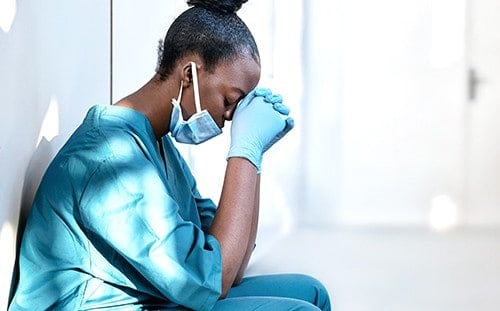The Coronavirus outbreak has provided some relief for disproportionate share hospitals (DSH). This comes as good news during a very challenging time, especially in contrast to the decrease in reimbursements to DSH facilities reported at the start of the year.
A report from the Congressional Research Service (CRS) summarizes the situation that leadership at facilities designated disproportionate share hospitals know so well: “The Medicaid statute requires states to make disproportionate share hospital (DSH) payments to hospitals treating large numbers of low-income patients. This provision intends to recognize the disadvantaged financial situation of those hospitals because low-income patients are more likely to be uninsured or Medicaid enrollees. Hospitals often do not receive payment for services rendered to uninsured patients and Medicaid provider payment rates are generally lower than the rates paid by Medicare and private insurance.”
And now we see more relief for these DSH hospitals because of the Coronavirus Bill and the subsequent funding disbursement. Generally, CMS reported in March that it would temporarily waive or modify certain Medicare, Medicaid, and CHIP requirements. CMS will also issue several blanket waivers listed on the website below, and the CMS Regional Offices will review other provider-specific requests. These waivers ensure continued access to care for beneficiaries. For more information on the waivers CMS has granted, visit: www.cms.gov/emergency. CMS has also prepared a 26-page factsheet for healthcare providers (PDF).
Meanwhile Becker’s Hospital Review has reported specific details from the $2 trillion COVID-19 relief package — the largest economic stimulus bill in U.S. history — 880-page legislation. Major takeaways include:
- The legislation creates a $100 billion emergency fund to reimburse healthcare providers for expenses or lost revenues related to the COVID-19 pandemic.
- The stimulus package would eliminate $8 billion in Medicaid Disproportionate Share Hospital payment cuts.
- The AHA — American Hospital Association — supports the legislation, calling it “an important first step.”
Richard Pollack, President and CEO of the AHA, noted in a release that “This bill includes important provisions that will help us respond, including the creation of an emergency fund grant program, additional support for taking care of COVID-19 patients and relief from spending cuts, among other provisions. This support will help those hospitals from rural and urban communities that are in dire financial need due to this devastating pandemic.”
It is good to see rural hospitals, many classified as DSH, receiving care because they provide so much care for the low-income demographic. Attorneys for law firm Holland & Knight, writing at JDSUPRA, report that “Notably, the bill extends funding for several healthcare programs (currently set to expire on May 22, 2020), including Medicaid Disproportionate Share Hospital (DSH), National Health Service Corps, Community Health Centers, and Teaching Health Centers that operate Graduate Medical Education (GME) programs through Nov. 30, 2020.”
Of course, things can change — and they have changed quite a bit since our last article on DSH hospitals we released a couple of months ago, reporting reimbursement cuts to DSH facilities. It is also noted that Section 3813 of the bill, on Delay of Disproportionate Share Hospital (DSH) reductions through Nov. 30, 2020, will see cuts beginning on Dec. 1, 2020 — if Congress does not intervene. We will have to keep watch to see how Congress responds to the situation later in the year.




